Oktane 2025 - all the news and updates as they happened
Oktane 2025 is over, here's everything we saw.
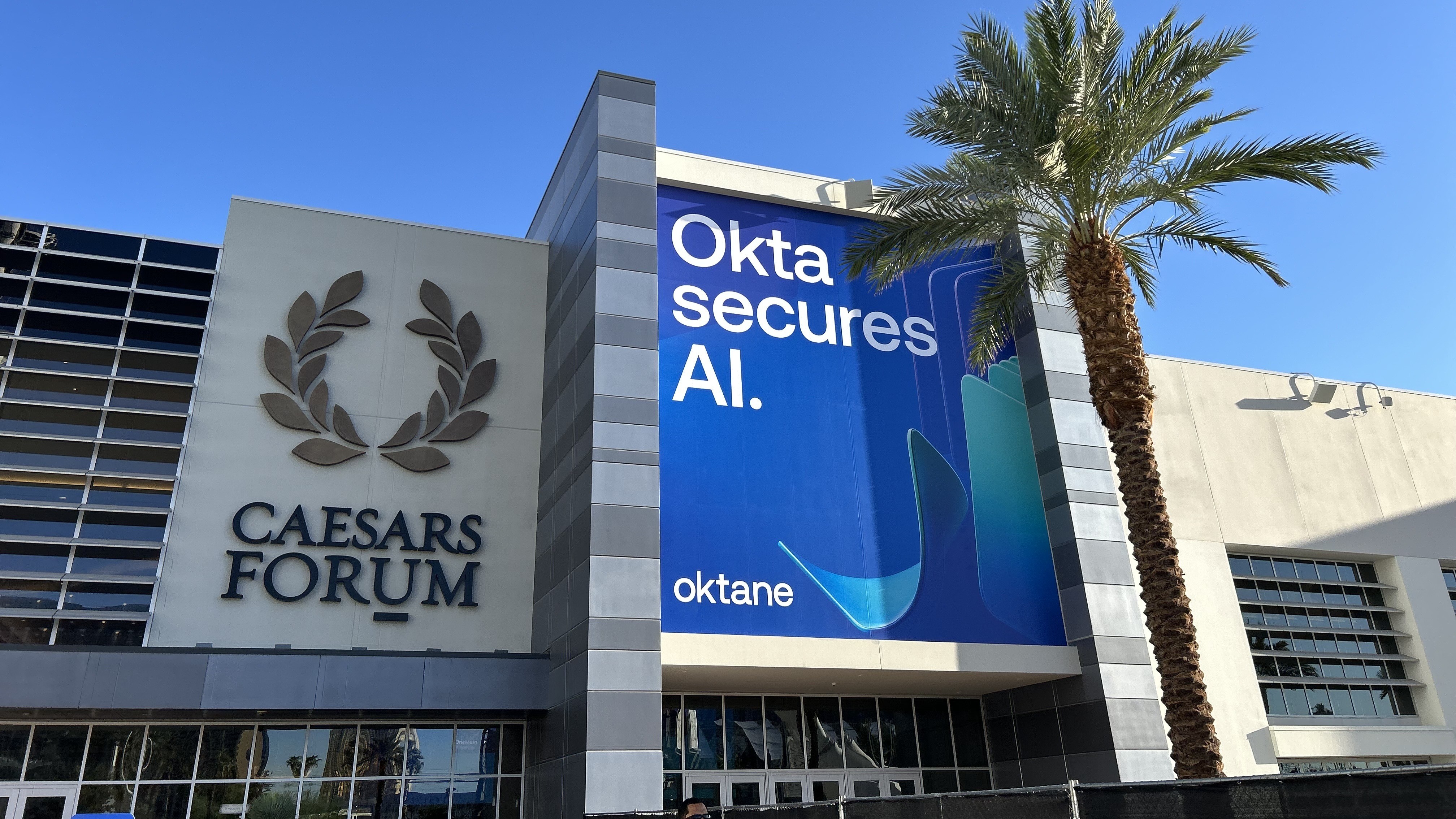
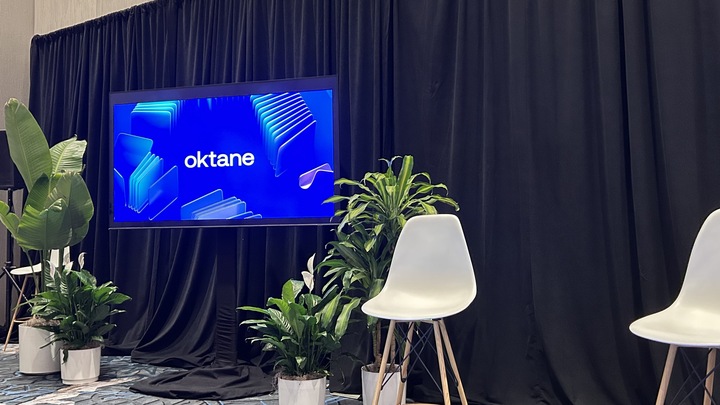
I've actually had a pretty packed day today already, with a couple of round tables, some briefings, and even a few one-to-ones.
So far, we've been hearing all how Okta secures AI - the theme of this year's Oktane.
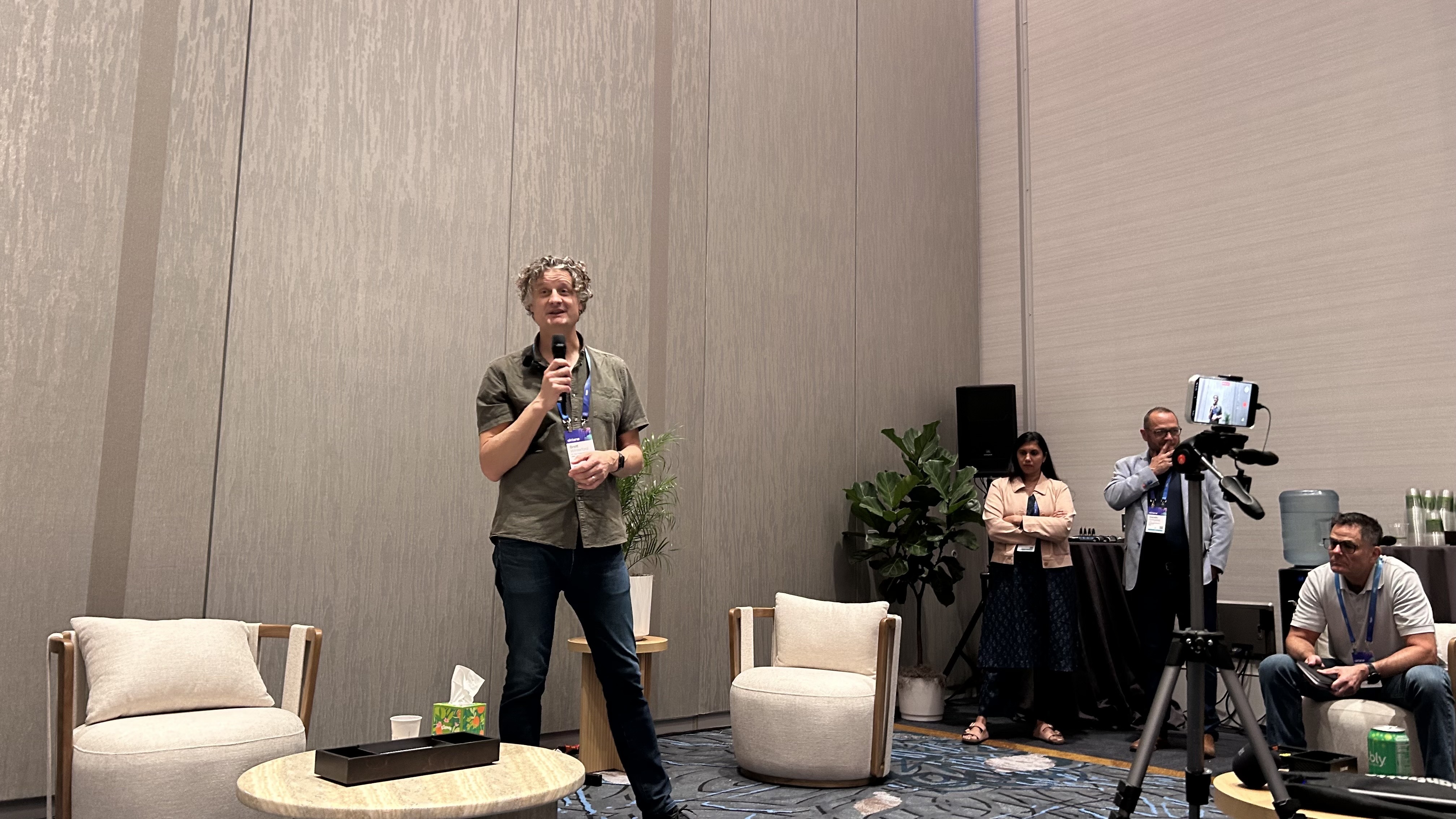
Here's a little peek at some of the more casual discussions we've had so far - with some really insightful conversations around AI, threat actors, and identity management.
Here's a snapshot of Brett Winterford's talk about Okta's threat intelligence team and the trends they've seen developing in the last 12 months.
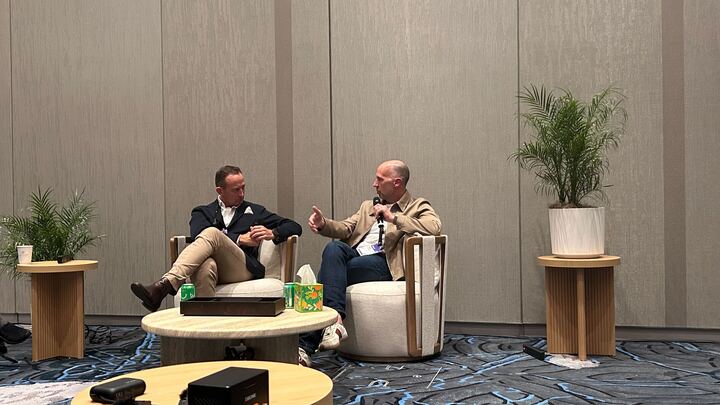
In our final session before we head over to the opening keynote (featuring Kerry Ok and Jeremy Renner!) we're hearing from an Okta customer.
Okta CRO Jon Addison, and Toby Roberts SVP of Engineering at Zillow are telling us about the use of AI and AI Agents and how this helps deliver a personalized and efficient experience to home buying with strong ethical guard rails and transparency.
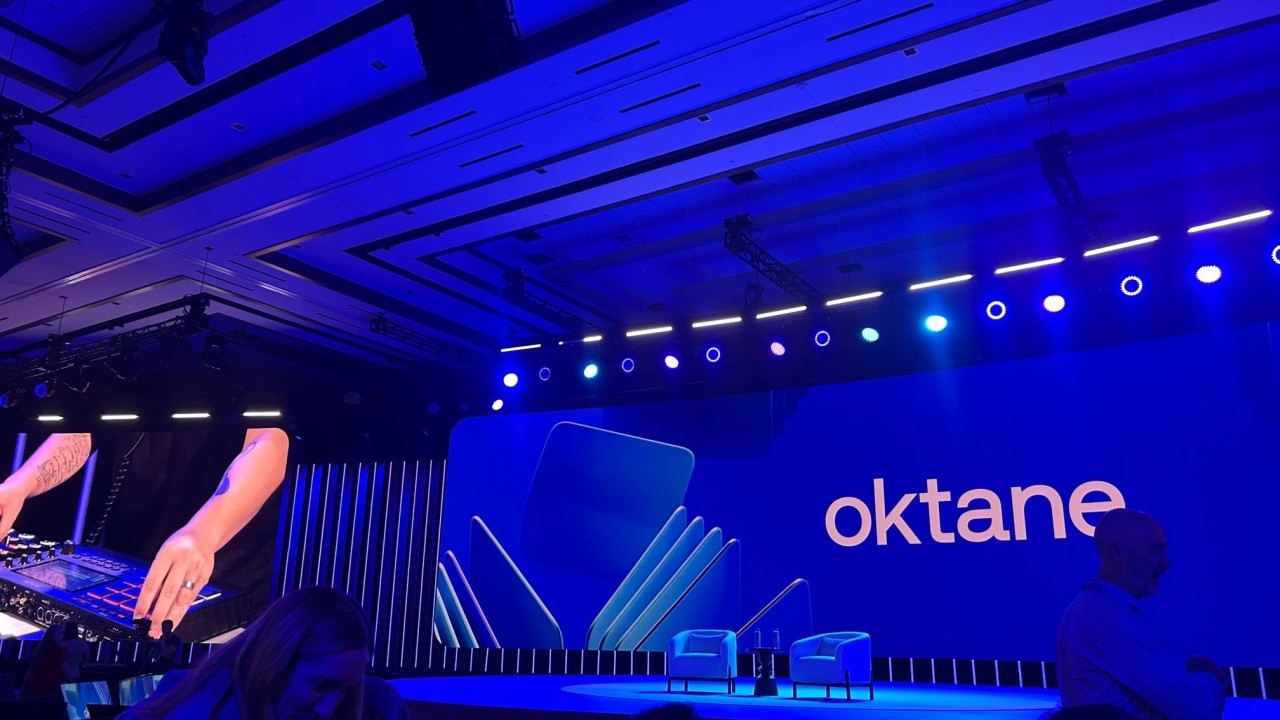
Okta is taking the tech conference tradition of aggressively loud music to a new level today - with its very own DJ for us to walk into (I'm not complaining, he's actually pretty good!).
So to kick off, we're listening to Jeremy Renner talk about the intersections of technology, security, and the human element. Focusing on 'resilience and identity' - Renner will hopefully give some insight into his incredible story (if only there were an app we could use to discuss this......)
Renner started acting in college, double majoring in theatre and psychology. He talks about struggling through adversity but he's thankful for it. Struggle brings a payoff.
The greatest advice he was given was from his dad, who told him to 'go out and fail' - this, Renner says, gave him the freedom to explore his passions without fear.
He says he 'repels complacency' and although action requires courage, he finds great joy in overcoming obstacles. 'Action is everything, it's what we are'. He got lucky in being tested to his limits, he says.
The best thing about working on the Avengers films was the shared experience between him and his fellow cast - 'kind of like a car crash, you go through it together' he jokes.
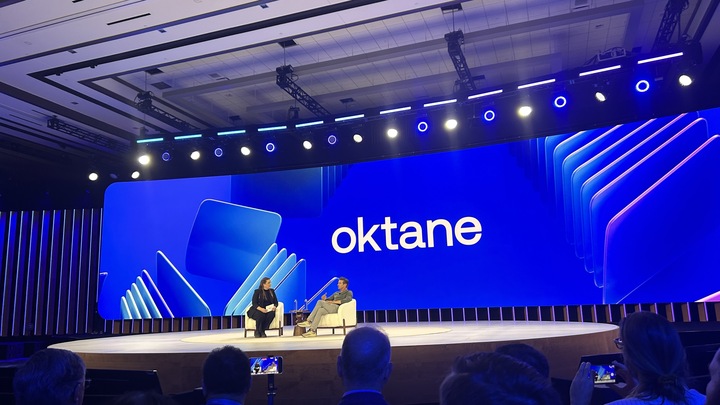
He talks about his family having to 'endure' what he put upon them after his accident. He had to redefine his identity after his accident, which happened on his own driveway - by sharing such a personal journey publicly brought a positive shift which has brought real connection and purpose, he says.
"It brought me some of the best times of my life, being crushed to death. I don't recommend it though!" he jokes.
AI is an inescapable topic, so Ok asks Renner about the effects of AI in his workplace. Renner explains he is a victim of AI - people have used his likeness and have scammed people using his charity foundation to trick people into fake donations.
He doesn't have much of an exposure to AI outside of this negative experience, he says, which is a very useful perspective especially for those of us who work in tech which can become a bit of an echo chamber.
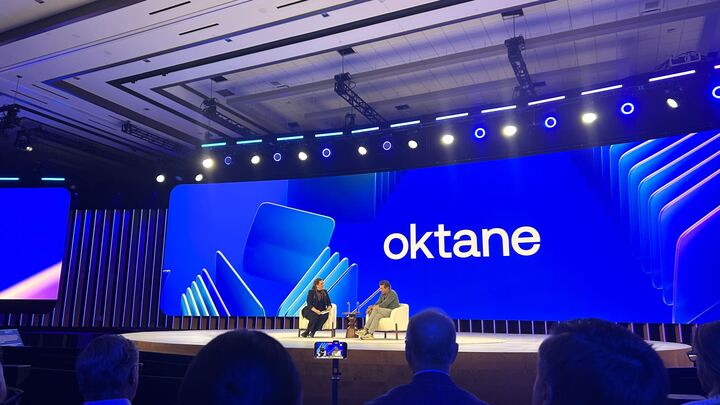
He finishes by talking about his excitement for new projects, working on his foundation and spending time with his family.
"I'm just happy taking my next breath. I'm happy to contribute and just to keep going."
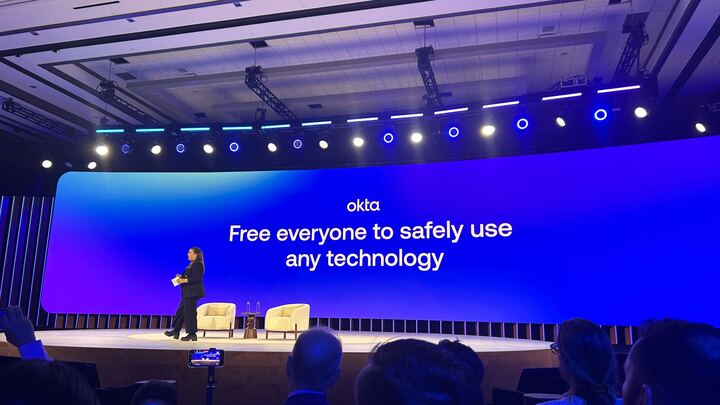
Ok wraps up Oktane day one by talking about Okta For Good, the firm's nonprofit arm that commits to empowering communities in cybersecurity.
"At the end of the day, the internet should be an accessible place for everyone."
That's all from us at Oktane today - make sure to tune in tomorrow for a packed keynote schedule and some exciting updates from Okta and more!
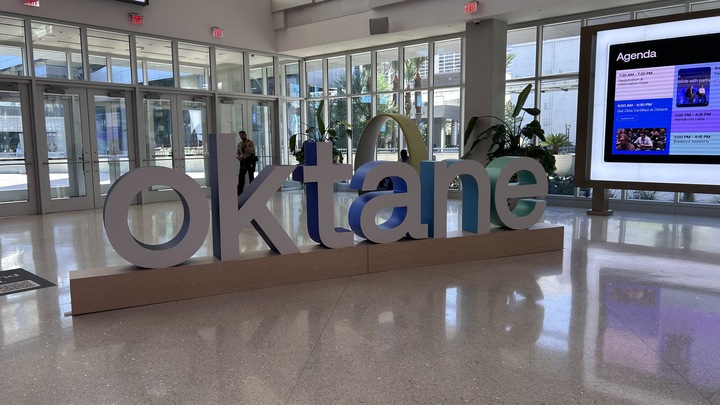
Welcome to day two of our Oktane coverage, we're settling in for an exciting day of keynotes, live demos, and exhibitions.
There's a full day ahead, so I'll keep you updated with everything Okta has to offer!
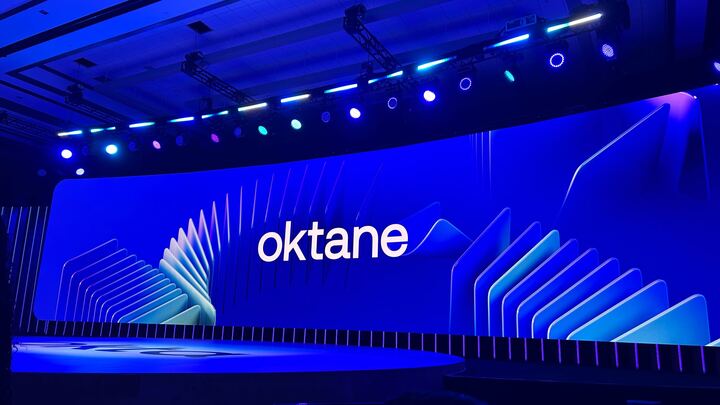
We're sat now for the keynote from Oka CEO and co-founder Todd McKinnon - we're expecting him to announce some exciting new security features , so stay tuned!
McKinnon starts by telling us that Okta is on a journey to be the most secure company in the world.
There's a huge opportunity for everyone with AI, he says. He has this FOMO around AI, he jokes.
"If I haven't built a $500b data center, what am I doing with my life?"
There's a balance to be struck between innovation and security, he says. Okta's core priority starts with the Okta Secure Identity Commitment. "This is how we innovate without compromise."
The initiative helps elevate the whole industry to be more productive from identity attacks,.
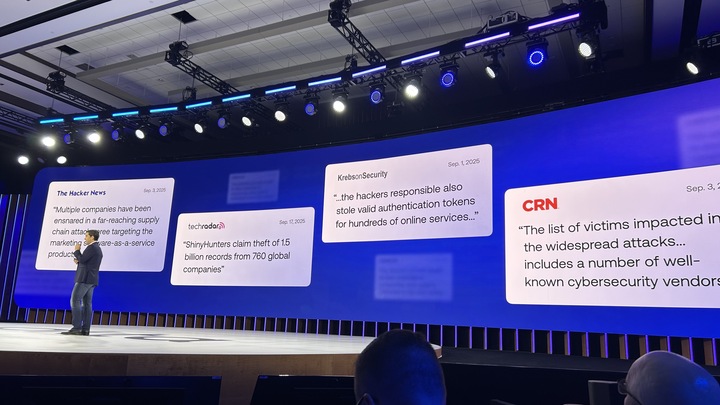
McKinnon talks about a recent breach of an AI agent (nice to see a TechRadar headline up there!) - but Okta wasn't affected by this breach.
Okta was protected thanks to its security commitment. AI won't reach its full potential without this security, he says.
Identity venders are increasingly complex, and add onto that the 'broad and persistent' access that AI agents need to be productive, and you have a huge potential risk.
He points to the recent McDonalds AI agent hack, in which a great AI agent, McHire, was built, but was seemingly left insecure with a weak password and security - exposing millions of applicants and users.
You can't address the issue of identity security with a 'grab bag of identity tools' - he says. You need a comprehensive security manifesto.
This is called Identity Security Fabric. 'You don't want 50 different solutions from 50 different vendors' he points out, and unifying these security tools like identity threat protection, governance, and more.
'It's our North star, it's bigger than Okta'.
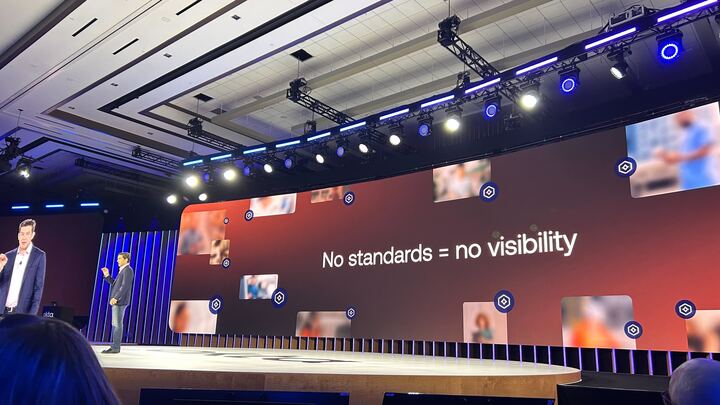
There are new features, he explains, which will simplify control and security all on one platform. These features will help 'weave AI agents into the identity security fabric'.
Okta is making AI agents first class identity on the Okta platform. "Okta is your AI partner," he says, bringing you access, connection, and activity.
'"To get AI right, you have to get Identity right."
Okta are working with the standards bodies to bring 'Cross App Access' - a new standard which simplifies agent-app communication, taking complexity away from the end-user.
This is a pioneering new open protocol - this standard is necessary and important, he says, to help secure the whole industry against threats.
They not stopping there, with new standards to be established, all built into Okta products. The open standards help the whole industry move towards a goal of 'zero identity-based attacks'.
That brings us to Auth0 - perfect for developers and built on the principles of security and reliability. Today, they're taking this journey even further with cross-app access support out of the box in Auth0.
If you're building an agent, you can build these as fabric-ready - quickly, and efficiently, and at scale.
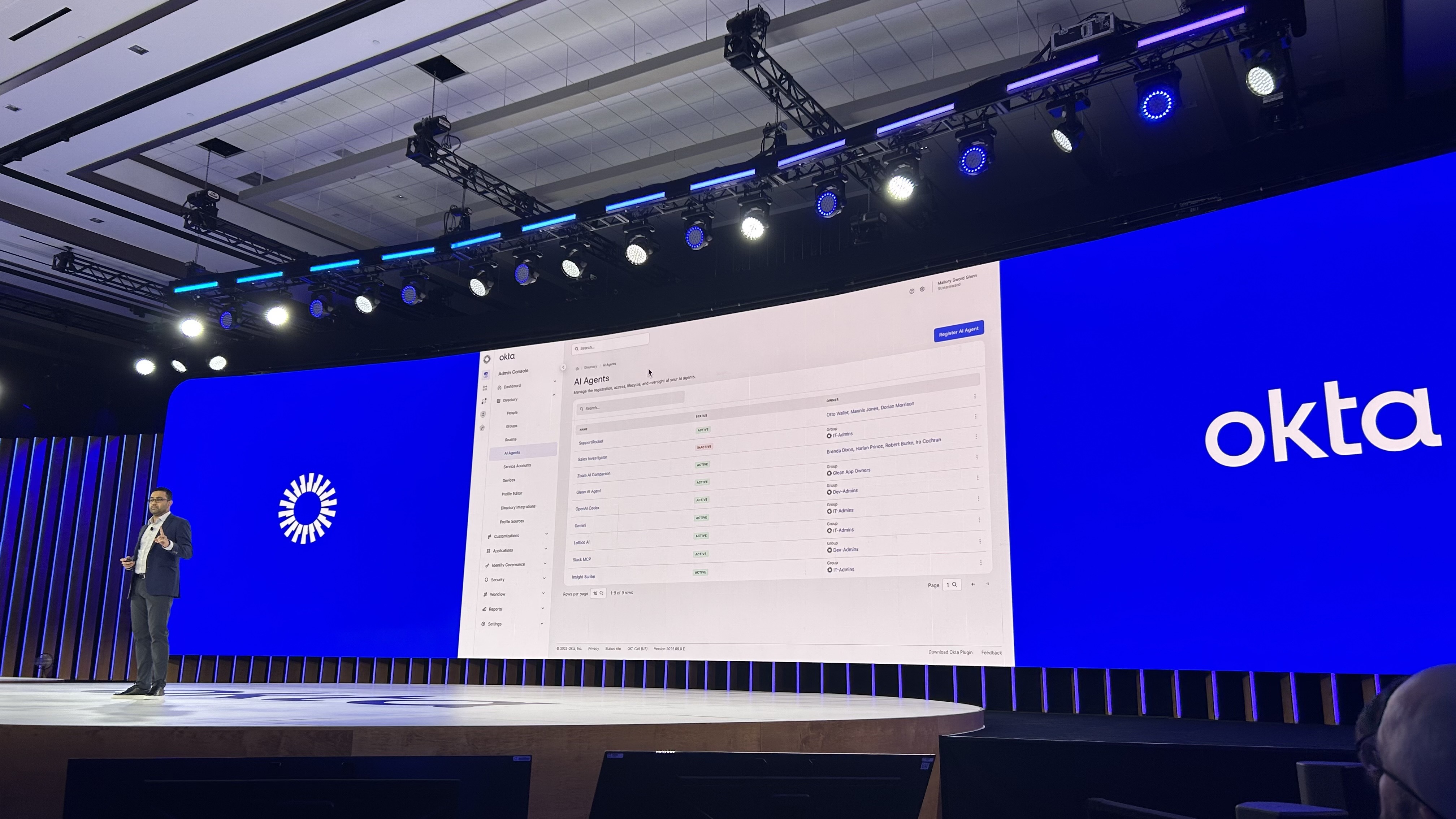
Now, we're getting a live-demo of the first-class identity for AI agents within the Okta platform from Harish Peri and Mallory Sword Glenn. This allows users to fine-tune access for agents, all in one helpful directory.
It's about staying on top of where your agents are going, Peri explains, and you can find a detailed audit trail of everywhere your agent has been.
Agents are now within the Okta security platform, meaning IT security teams can be proactive in tracking potential threats and overall security.
This is all packaged up into one solution called 'Okta for AI agents' - including everything you need to build and manage agents securely.
This is the most comprehensive security solution in the whole market, McKinnon says.
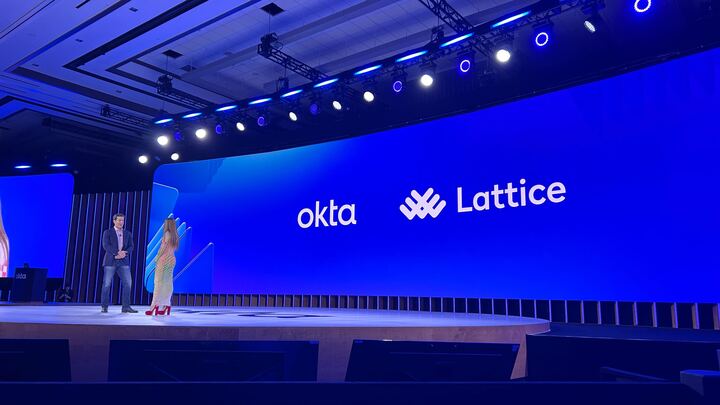
Now, we're hearing from Sarah Franklin, CEO of Lattice.
She's focused on bringing success to people, but the next decade will be defined by how we secure AI. Lattice deeply cares about the human impact, with AI playing a support role rather than taking human roles.
People are afraid, she points out, and work is going to change for everyone - we need to be very responsible about how we introduce AI.
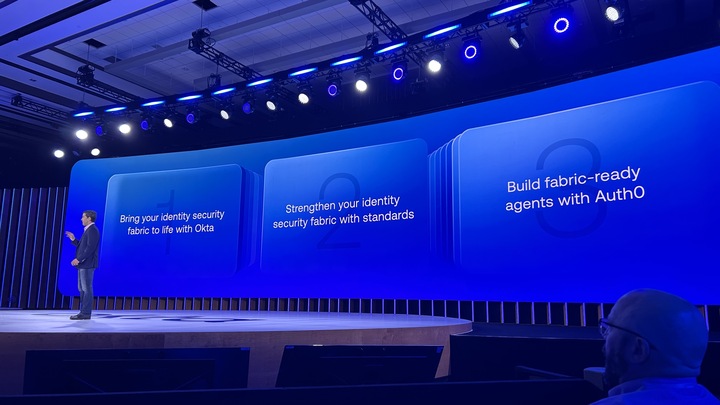
McKinnon finishes by explaining that security is a collective responsibility. There's been a lot of progress, but there's still a lot of potential and benefits to come, he says.
Next up, we're listening to Abhi Sawant, Okta’s Chief Technology Officer. He'll be discussing the continuous, end-to-end security that agentic AI needs
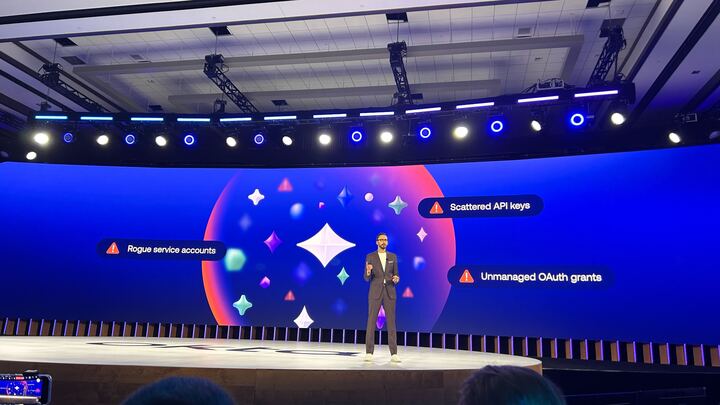
First though, we're hearing from Jack Hirsch, VP of product management.
He argues that security shouldn't be friction, it should be the accelerator. Ai agents are new, but best practices to secure them are not, he says.
Visibility, control, and governance remain at the core of securing these identities.
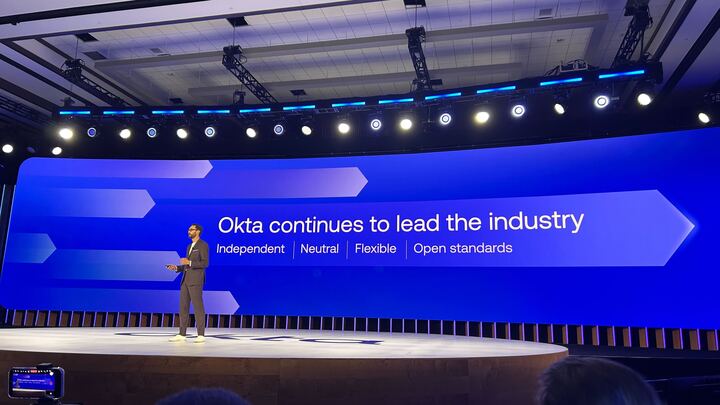
There are fundamental challenges around how agents get access, he says. Non-human Identities can be over-conditioned, long lived, and hard to govern.
Users often have to provide consent one app-grant at a time. Cross App Access is a simple extension of 0Auth with three critical benefits;
Admins are back in control, it eliminates all standing access, and users no longer see thousands of 0Auth consent screen - a massive improvement in user experience.
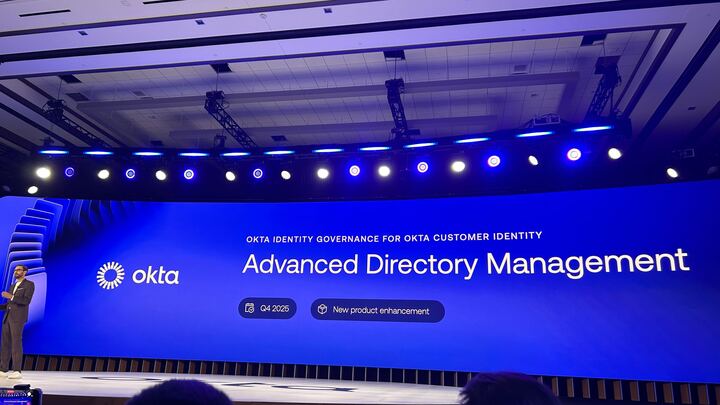
Hirsch introduces Advanced Directory Management - which helps ensure the right access at scale - before, during, and after authentication.
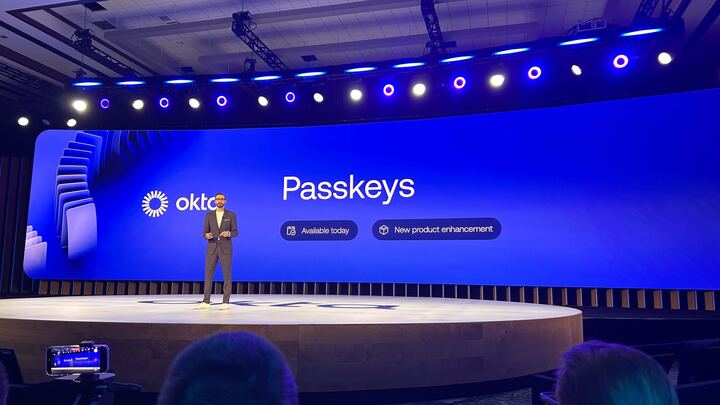
Also available today, are secure, phishing resistant passkeys - saving end-users time and energy with password-less login for a smooth, seamless credential experience.
Okta is also bringing identity threat protection to prevent bot attacks during authentication - but it doesn't stop there. Okta Identity Governance is also coming to Okta customer identity - true AI identity security in action, Hirsch says.
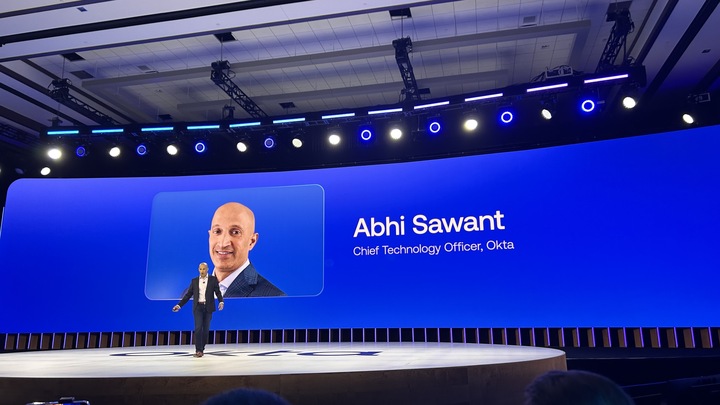
Now, we're introduced to Abhi Sawant.
He calls Active Directory a 'rat's nest' of identity security problems. Okta provides a single, unified solution for IT and Security teams.
Okta is also extending Identity Security Posture Management (ISPM) to Active Directory, on premise. This is a game changer for protecting on-prem environments.
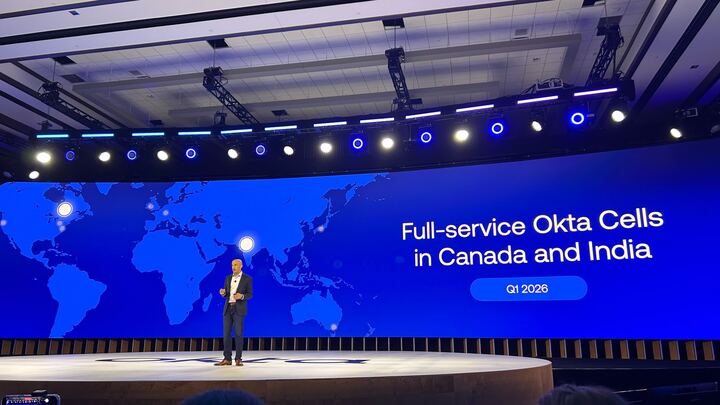
Identity security fabric is only as strong as the foundation it's built on. Downtime can be lethal for a company, and Okta is built to be 'always on' - having had no downtime during 2025 - Sawant points out.
That's why they're announcing an expansion with new Okta cells in Canada and India - to serve your customers wherever they are.
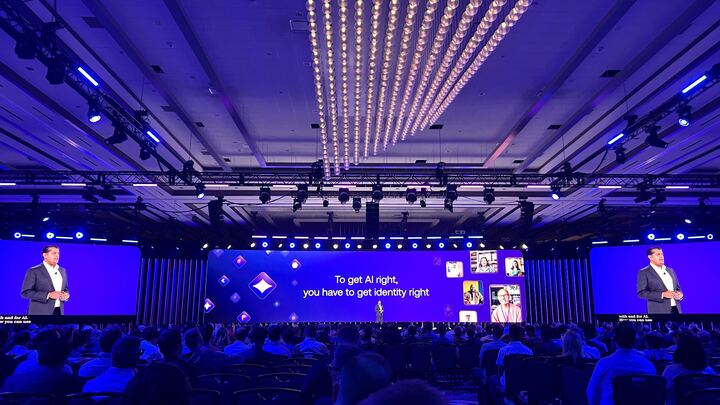
Next up, it's the last of today's keynotes. We're listening to Shiv Ramji talk about how Auth0 is securing AI-ready experiences.
We're entering a new era of AI, he says (which we've heard a lot). Auth0 can be used to build AI agents securely. One take away from this session, he says, is this:
'If you get AI right, you have to get identity right.'
When AI isn't secure, the risks are real - he warns. Infrastructure is left vulnerable, data is leaked, and companies and users suffer as a result.
Identity cannot be bolted on after the fact, agents need to be secure by design.
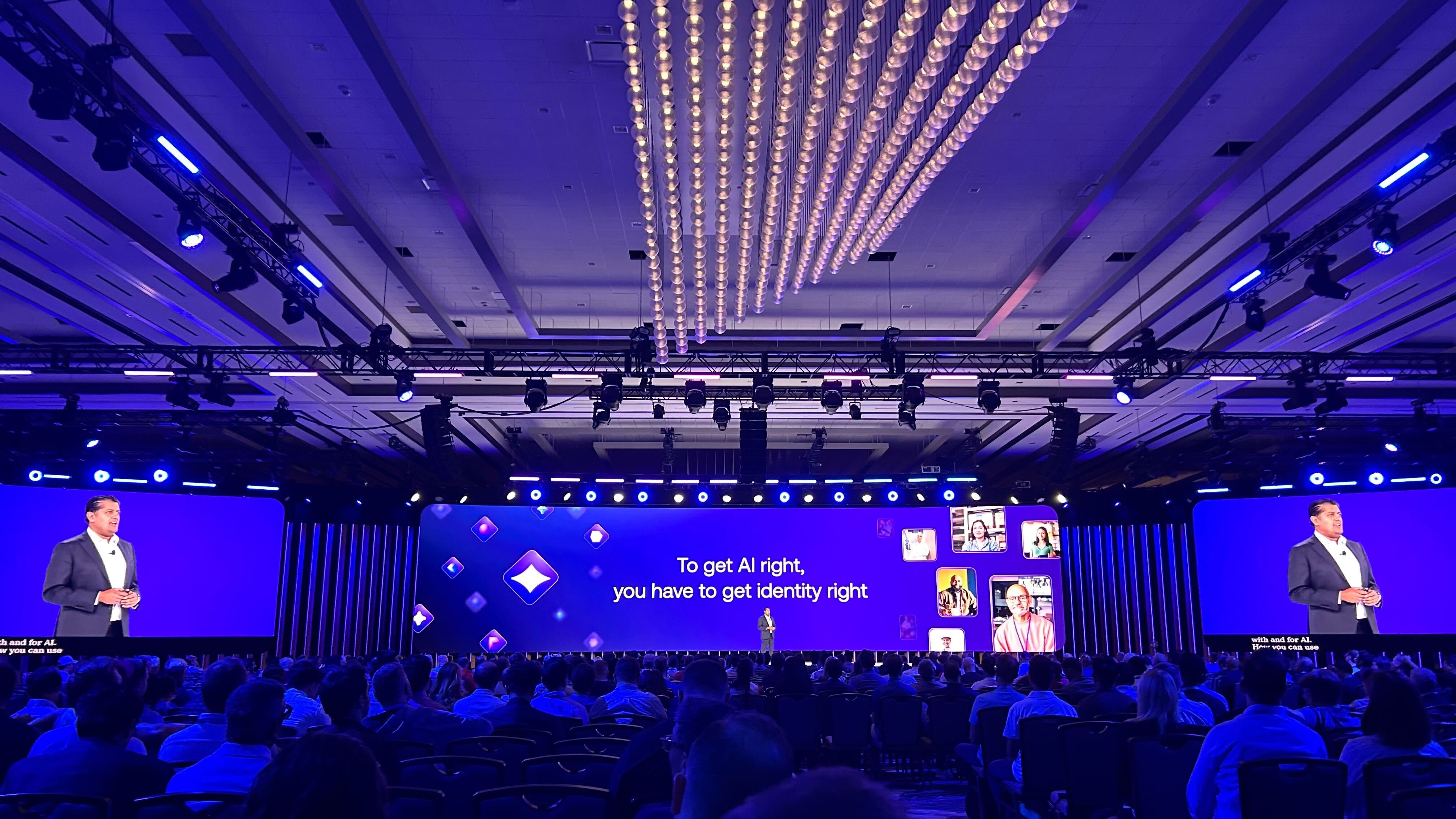
Auth0 for AI agents will be generally available for AI agents next month, announces Gareth Davies, Chief Product Officer at Auth0.
Auth0 has boiled securing AI agents to four requirements; user authentication, secure API calls, auditable async interactions, and granular data access.
That's the last of the keynotes for today - I have a quick break now, but I'll be back shortly to have a look around the exhibits.
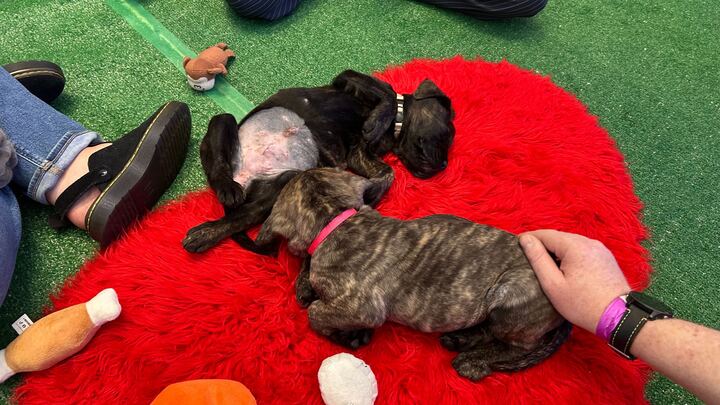
As always with tech conferences, there are a few funky stalls - today, its a puppy stand. Controversially, I'm not a fan of dogs (sorry!) but the stand owner was kind enough to take this photo of these two, who are a having a nap after a bit too much play time.
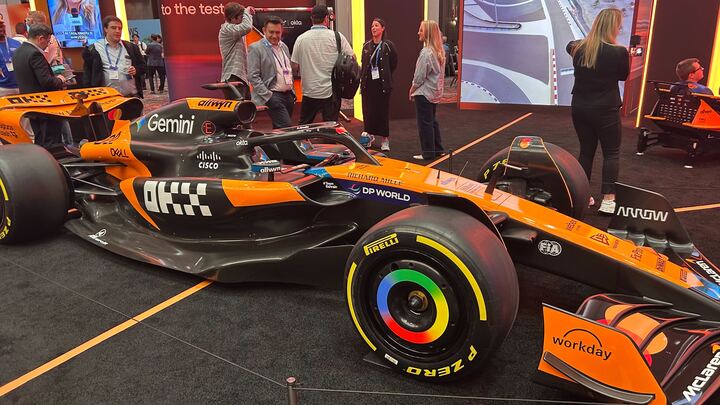
Following up on some more interesting stalls and exhibitors, we've got the obligatory F1 car - nice to see a few people crashing on the simulator too (just for my own entertainment!).
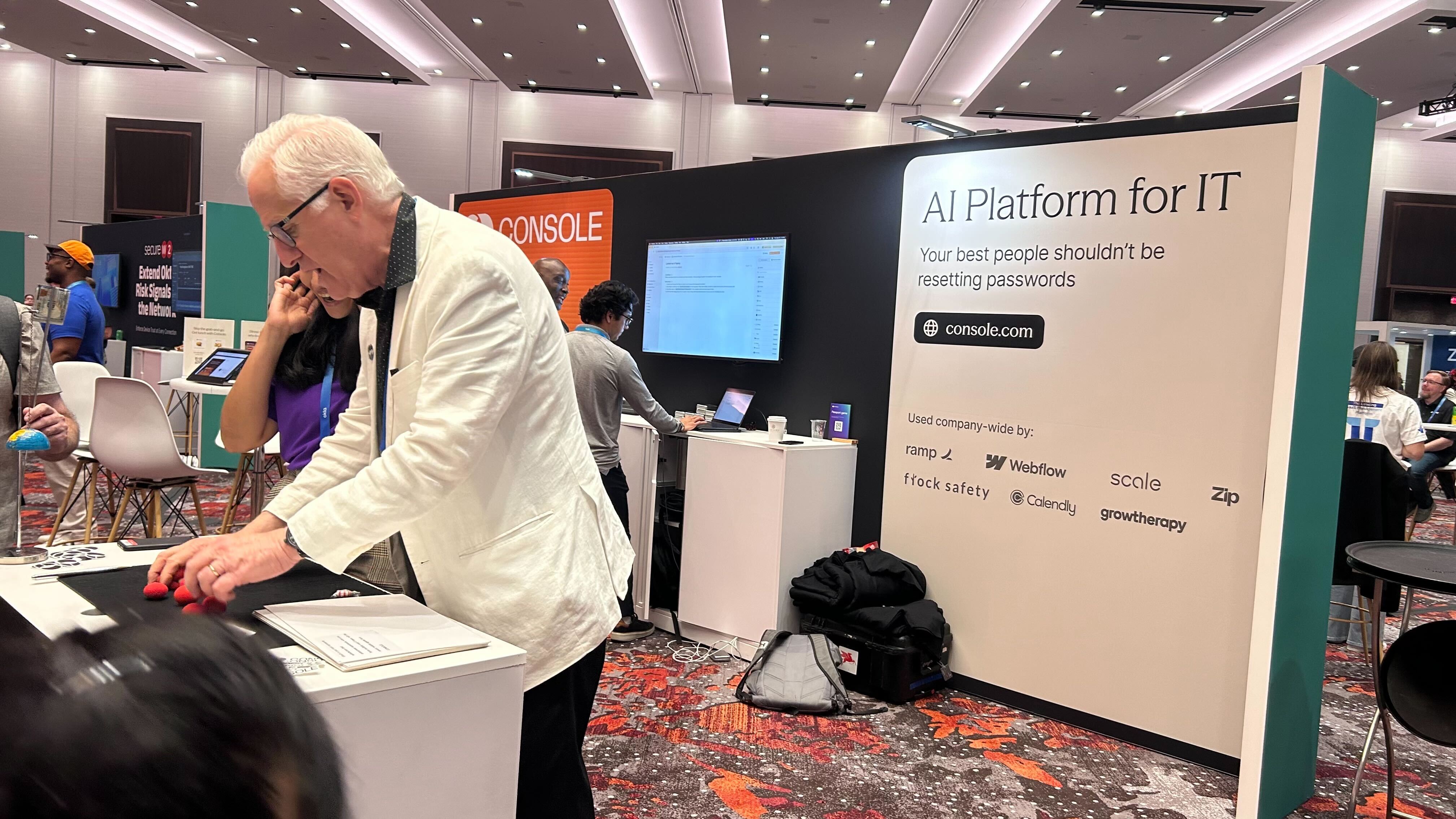
There's also a mini magic show at Console's stand - charismatic as this guy was, he unfortunately wasn't spot on with his predictions - but he did guess the right card!
I've also spotted a Squid Games simulator, and although I'll admit I've only watched a few episodes, I can't say it seems the type of thing you'd want to put yourself through ....
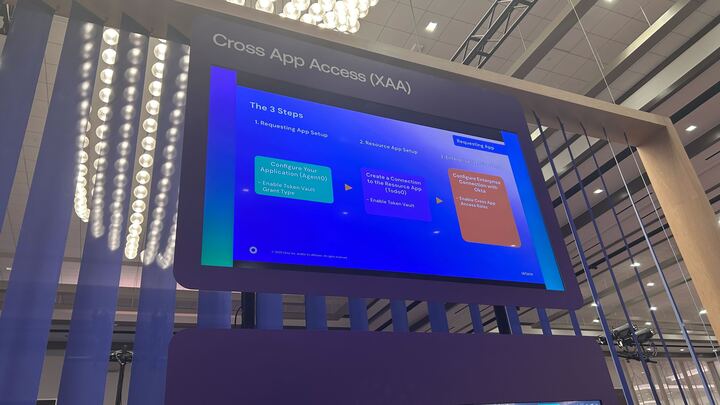
Finally, it's a quick stop for a demo of the new Cross App Access (XAA) - this seems like one that customers and users are particularly excited about, so it's interesting to see it in action.
That's all from us today - we'll be heading back tomorrow for the closing keynote, so be sure to check in for the final updates.
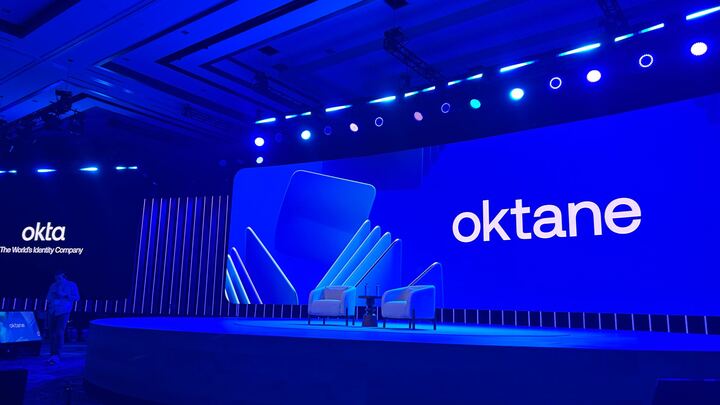
Welcome to Oktane day three! It's a much shorter session today, with just the keynote to close out the show.
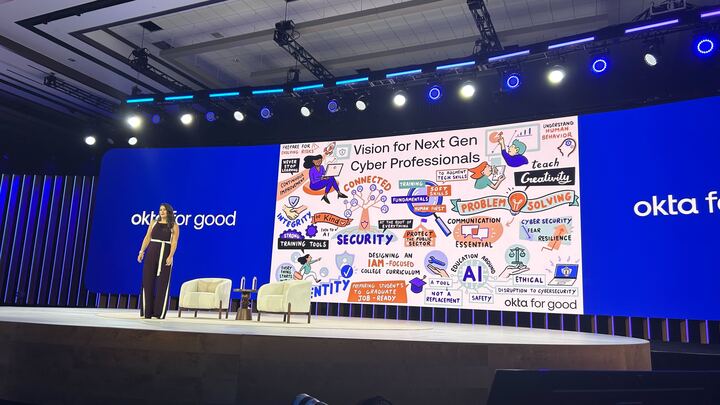
To start off, we're hearing from Erin Baudo Felter - Chief of Staff to the COO. She's talking about social responsibility and how Okta is contributing.
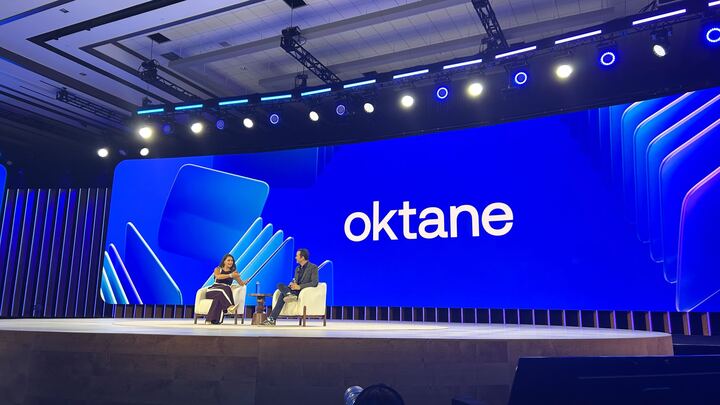
She introduces Gordan-Levitt, best known for 10 Things I Hate About You and Inception. He talks about his start as a creative, and his love for acting from a young age - there's a difference between showbusiness and art and creativity, despite how much they get conflated nowadays, he says.
He was fortunate in being able to act without it being a financial necessity. He says Looper stands out as a favorite project, as well as Don Jon.
He goes on to talk about his project HITRECORD - a platform for creative collaboration. He grew the digital platform from just a small feed to a huge collaborative ecosystem until it eventually became a production company.
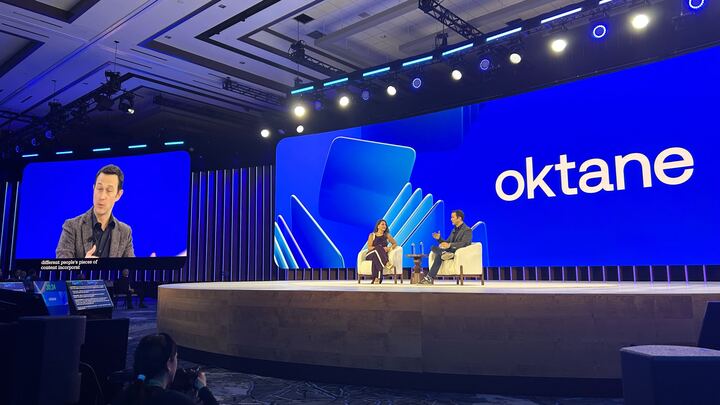
It eventually grew from a collaborative product, to a tech company. They attended conferences like this and learnt what KPI stands for, he jokes, which was a steep learning curve in handling and analyzing data in a new way.
Gordan-Levitt says he's always been fascinated by AI. LLMs particularly were of interest - he started with GPT2, but the leap from GPT2 to GPT3 is what caught his eye as impressive. The technology is inspiring, he says, giving more and more people the opportunity to create 'incredible, beautiful things' for much less.
He has some concerns about the way that LLMs are runs, particularly in how data is used to train the AI without the consent or compensation of the creatives behind them. This is not just bad for the creators, but also sets a concerning precedent for the future economy - he argues.
Tech companies taking anything any creative can make and profit from it will only compound capital in the hands of a few, he points out.
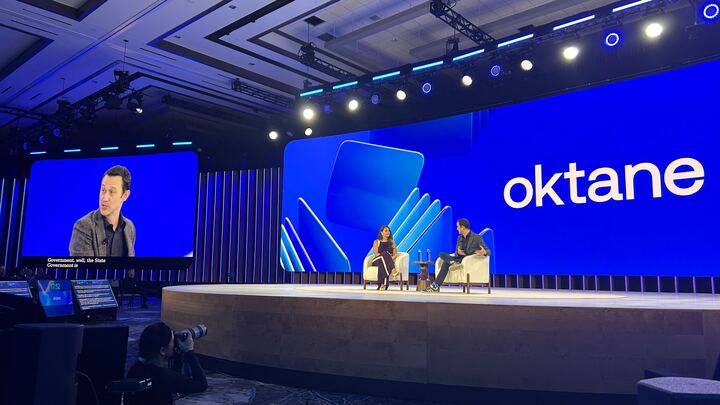
Security plays a huge part in this, too. Basic safety and transparency protocols are pretty well agreed upon, but transparency requires the state to 'beef up' its security in order to protect the data it collects.
If tech could create value without drawing from other people's work, this would be a different story, he explains. These LLMs have zero economic value and can do nothing without the hoards of training data from creatives, and this will eventually affect jobs; 'Even if we get this right, no industry is gonna be the same'.
Human creativity should still have an economic incentive, and there should be conversations about job transitions to support creatives across all industries. He doesn't see a responsible and ethical version of this transition without serious ground work.
There's a tension between innovation and safety. Gordan Levitt is quoted saying; 'Whenever anyone mentions guardrails for AI, someone else objects, but just because we're going fast, doesn't mean we're going the right way.'
We're facing something as momentous as the industrial revolution, he says, but if the sole goal is to maximize profit, we won't build a future that's good for the wider world.
There’s a world where technology can provide safety and comfort for everyone - and the ‘good version’ of technology is about fairness, he argues.
Technology by itself is neither good nor bad, it’s about how people chose to use it. ‘Let the bullies take a seat’ he jokes, and huge tech companies shouldn’t profit above all else.
He finishes by reminding us that the privilege we have in building tomorrow’s technology comes with a huge amount of responsibility; ‘if all you work for is maximizing profits, that won’t lead to a good world’.
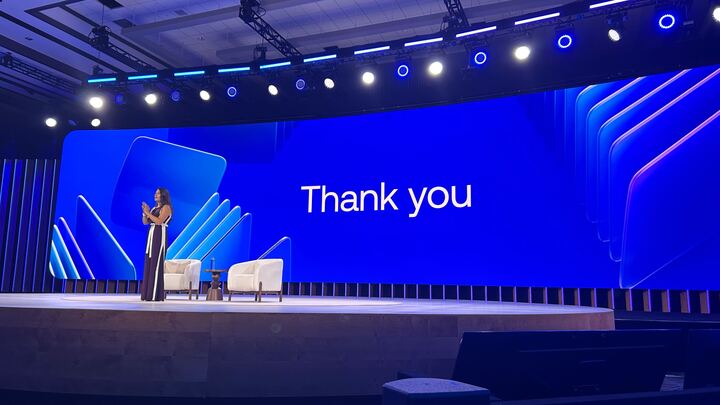
That's a wrap for Oktane 2025! Thank you to everyone who organized this years event - and also to all the great people we spoke to. Thanks for reading along - stay tuned to TechRadar Pro for more updates, events, and news!
You must confirm your public display name before commenting
Please logout and then login again, you will then be prompted to enter your display name.